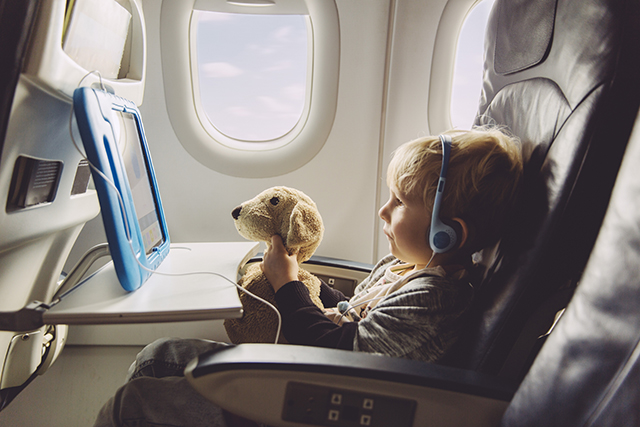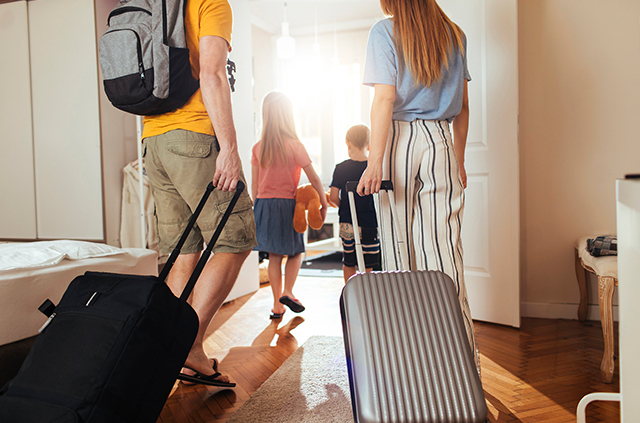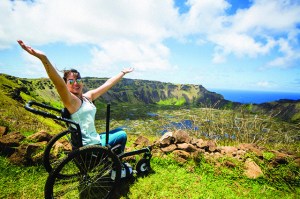Preparing for a trip is exciting, but it can also be stressful. From figuring out your mode of transportation to booking accommodations and mapping out attractions, there’s an added level of considerations to be made if your child, significant other or family member has an autism spectrum disorder.
The prevalence of autism in the U.S. has risen from 1 in 125 children in 2004 to 1 in 44 in 2021, according to the Autism Society, making traveling with autism a situation more and more families have to think about.
Traveling with someone with autism requires some extra preparation and patience. Here are our tips for planning for a trip with adults or children on the spectrum.
Recognizing the Challenges
Learning how to travel with an autistic child or family member with special needs may pose some specific challenges. Changing a routine, navigating unfamiliar environments and the potential for significant sensory stimulation (loud noises, bright lights, etc.) can all cause your loved one discomfort and/or stress.
Only 13% of parents with a child on the spectrum said they take family vacations, according to a survey by the International Board of Credentialing and Continuing Education Standards. An even smaller 11% of these parents said they are “satisfied with current travel options for families with autism,” but 93% said they would be “more inclined to travel if autism certified options were available.”
Pre-Travel Prep
“While a lot of research shows that travel is one of the most intellectually stimulating events for individuals with autism, there are very few travel options that are trained and prepared to meet the needs of those on the spectrum,” according to the Autism Society.
When planning your trip, consider talking to a travel advisor who went through a Certified Autism Travel Certificate program – also referred to as Certified Autism Travel Professional.
“I highly recommend using our AAA travel advisors with a SmartDepart Certification and an Autism Travel Certification,” said Stacey Crowley, AAA Travel Business Operations Manager. “They have all the information you need to navigate through all the pieces of your trip with ease!”
You can also find certified destinations via AutismTravel.com, a resource created by the IBCCES. Destinations with certified autism centers will have resources like quiet rooms and at least 80% of their staff is trained in the field of autism.
Other Resources
If you’ll be traveling by plane, the TSA Cares helpline offers travelers with disabilities, medical conditions and other special circumstances extra assistance during security screenings. Call 72 hours before traveling with your questions about the security screening process. Call 855-787-2227 or email TSA Cares.
You can also request a passenger support specialist, fill out a TSA Disability Notification Card or apply for TSA PreCheck.
“If a passenger with a medical device, medical condition or a disability is approved to use TSA PreCheck, he or she does not need to remove shoes, laptops, 3-1-1 liquids, belts or light jackets during the screening process,” according to the TSA. “However, everyone is required to undergo screening at the checkpoint by technology or a pat-down.”
For more information on what to expect at the airport, see this document from the TSA and/or these PreCheck and screening tips from the IBCCES.
TSA PreCheck enrollment is now available at select AAA branches. Learn more.
When it comes to hotels, parks and other attractions, see if the location is a Certified Autism Center and consider getting a IBCCES Accessibility Card, a free resource to help individuals with cognitive disorders or physical impairments identify helpful accommodations when visiting certified attractions.
Working Together
There are several steps you and your loved one can take to make your next trip less stressful. Consider marking your trip on the calendar.
“It is important to determine how much preparation a specific person may need,” according to the Autism Society. “For example, if your son or daughter has a tendency to become anxious when anticipating an event that is to occur in the future, you may want to adjust how many days in advance you prepare him or her.”
To help prepare your family member for your travels, another option is making a social story or going through a detailed schedule of your trip.
“Let them help in the planning, come to your local branch and pick up some maps or tour books, watch YouTube videos of the rides at Disney you want to go on,” said Crowley. “Getting them invested in the trip will help add excitement and lets them feel like they are in the driver’s seat.”
As your departure approaches, do everything you can to help your child or relative feel as comfortable as possible. This means prepacking their favorite snacks, following your normal nightly/morning routines prior to your trip and bringing a comfort item. Consider a back-up comfort item as well.
“Having familiar items readily available can help to calm stressful situations,” according to the Autism Society.
Other tips include looking at pictures/videos from a previous trip. This helps remind them how fun traveling can be and remind them that they’ve done it before. If you’re going to be traveling for an extended period of time, whether it be via car or plane, consider exercising or playing beforehand to help them burn some energy.

Traveling by Plane
At the airport, consider doing a practice run or role-playing what will happen during the different stages of boarding the plane. Also, consider bringing noise-cancelling headphones if your relative or child is sensitive to this type of stressor.
On the plane, help combat the discomfort of ear popping due to air pressure changes with a piece of candy or gum, or a chewing toy or pacifier for toddlers and infants.
Once you’re safely in the air, keep everyone entertained by watching a movie, listening to music or playing a game on a device. For younger kids, coloring books, toys and putty are good options, too.
If your child or family member is especially anxious about the plane ride, consider setting up a countdown timer. This way they’ll know exactly how much longer the flight will last.
Stay Positive
Be prepared, keep an open mind and have confidence in recognizing your child, spouse or family member’s comfort level.
“Know how much noise and other sensory input they can tolerate. Know their level of anxiety and the amount of preparation it may take,” according to Autism Society. “If you detect that a situation may be becoming overwhelming, help them find a quiet area in which to regroup. And there may be some situations that you simply avoid (e.g., crowded shopping malls the day after Thanksgiving). Know their fears and those things that will make the season more enjoyable for them.”
When planning your next trip, trust your gut and utilize as many resources as you can. Don’t be afraid to ask for assistance.
“I just want families to know that it is possible to travel and have those vacation memories everyone dreams of,” said Crowley. “There are a ton of great resources out there to help guide you through vacation planning, and AAA is one of them that you definitely want to use. We are always here for you, so let us do the heavy lifting so you can relax and enjoy. There is such a great big beautiful world out there and everyone deserves a chance to explore it!”
Get more information about accessible travel.
2 Thoughts on “Tips for Traveling With Autism”
Leave A Comment
Comments are subject to moderation and may or may not be published at the editor’s discretion. Only comments that are relevant to the article and add value to the Your AAA community will be considered. Comments may be edited for clarity and length.

















Autistic children become adults. My son is now 27 yrs old, 6’5″ tall. He can become irritated and combative. We need more info on ADULTS WITH AUTISM PLEASE.
Hi, Janet. Thanks for reading and commenting.
Some other great resources include Mobility International USA, the Interactive Autism Network and the Autism Society National Helpline.